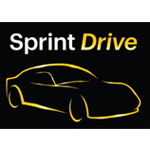 Sprint may be returning to a subsidized device pricing model for Sprint Drive, the company’s connected car offering. The company said it is offering a free wireless device that plugs into the car when customers sign up for a 24-month contract and qualifying data plan.
Sprint may be returning to a subsidized device pricing model for Sprint Drive, the company’s connected car offering. The company said it is offering a free wireless device that plugs into the car when customers sign up for a 24-month contract and qualifying data plan.
Details of the offer are somewhat sketchy, however, as the company notes that to get the free device customers must sign up for a 24-month installment plan, which normally implies that a device is being paid for over time. A quizzical footnote in the company’s press release reads “$0/month after $5/month service credit within two bills.”
Sprint did not immediately reply to a request from Telecompetitor for an explanation about the “free” offer, but we will publish an update whenever we hear back from them.
The monthly cost of the service is $25 per line with unlimited mobile hotspot connectivity or $10 per line with a two-gigabyte limit on the mobile hotspot.
Sprint Drive
According to today’s press release, Sprint Drive includes real-time vehicle location and monitoring, trip history and alerts when drivers accelerate or brake in a “hard” manner, in-vehicle Wi-Fi underpinned by LTE, vehicle health notification alerts, a mechanic hotline and up to four 24×7 roadside assistance calls per year.
Sprint also notes that Sprint Drive “lets parents relax by allowing them to monitor their teen drivers with real-time tracking, follow a vehicle’s location and send an alert if their young driver goes beyond established boundaries.”
The Sprint Drive connected car offering is cloud-based and uses technology from HARMAN Ignite.
Other Connected Car Offerings
Sprint Drive is the latest connected car offering from Sprint. In 2013 the company launched a connected car platform targeting automakers – a strategy that some other wireless carriers, including AT&T and Verizon, also have used.
Verizon and T-Mobile also have after-market offerings similar to Sprint Drive that use devices similar to the one that supports Sprint Drive.
Carriers have big hopes for the connected car market, often citing it as a key growth area at a time when some see the traditional wireless market as having reached a saturation point.
